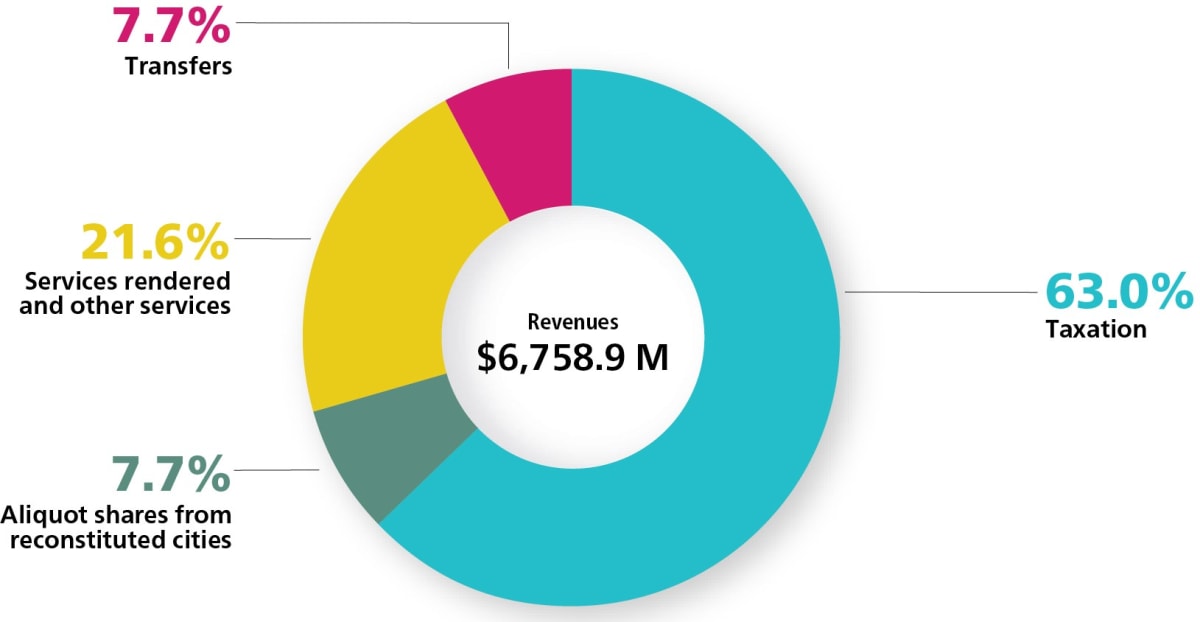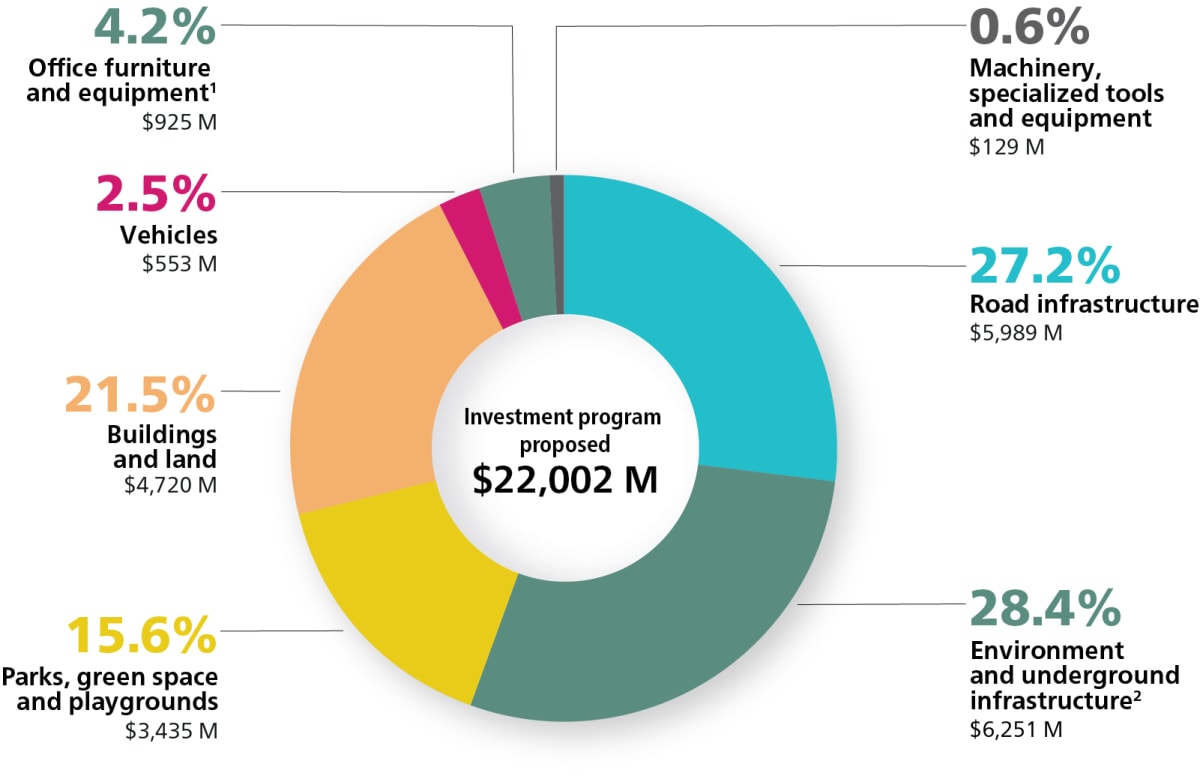Montréal’s 2023 Budget 2023-2032 and Ten-year capital works program
The 2023 budget and the ten-year capital works program for 2023-2032 will include measures meant to limit the impact of inflation while reinforcing the city’s actions in the areas of public safety, housing, mobility and the ecological transition.
A balanced budget of $6.76 billion
The operating budget covers all of the city’s current expenditures for a fiscal year.
Breakdown of expenses by activity
Sources of revenue
Municipal taxes
Despite inflation, the city is limiting the tax increase to 4.1 per cent for residential buildings and to 2.9 per cent for non-residential buildings.
City council decisions (+3.4%)
General property taxes: +2.7%
Water tax: +0.6%
Debt-related tax: +0.1%
Road system tax: 0%
ARTM tax: 0%
Borough council decisions (+ 0.7%)
Service taxes: +0.6%
Investment taxes: +0.1%
Property tax increase: +4.1%
City council decisions (+ 2.8%)
General property taxes: + 2.1%
Water tax: + 0.6%
Debt-related tax: +0.1%
Road system tax: 0%
ARTM tax: 0%
Borough council decisions (+0.1%)
Service taxes: +0.1%
Investment taxes: 0%
Property tax increase: +2.9%
Infrastructure maintenance: A priority of the ten-year capital works program
The ten-year capital works program is made up of major projects and investment programs that the city plans to undertake over the next 10 years. For the period of 2023-2032, these investments total $22 billion.
Maintaining aging infrastructure remains our priority: 68.1 per cent of planned investments are aimed at maintaining existing facilities, rather than developing new projects.
In 2023, the main investments will be in water infrastructure ($763.4 million) and road infrastructure ($476.4 million).
Investments by asset category
Funding methods
Documents
Quick search
Need help?
Contact us if you have questions.
Are you sure you want to leave this page?
This page is not available in English. You will be redirected to the English home page.




